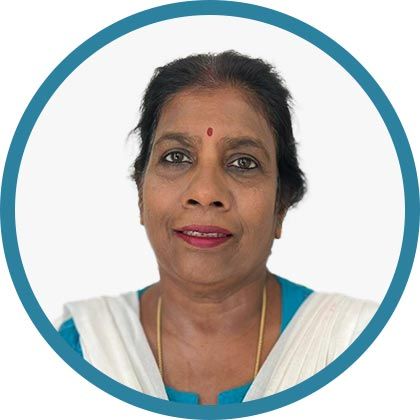Commonly Overlooked Diseases in Women
Discover commonly overlooked diseases in women, including subtle symptoms and tips to manage them. Learn how early detection and awareness can lead to better health outcomes and timely treatment.

Written by Dr. Vasanthasree Nair
Reviewed by Dr. J T Hema Pratima MBBS, Fellowship in Diabetes Mellitus
Last updated on 13th Jan, 2026

Introduction
Women often juggle multiple roles, caregivers, professionals, and homemakers, which can sometimes lead to neglecting their own health. Many diseases that affect women go unnoticed until they become serious. This article highlights some commonly overlooked conditions, their symptoms, causes, and ways to manage them.
Why Are Some Diseases Overlooked in Women?
Certain health conditions in women often go unnoticed or are misdiagnosed due to:
1. Symptoms Are Dismissed – Many women ignore early signs, attributing them to stress or fatigue.
2. Lack of Awareness – Some conditions are less talked about, leading to delayed diagnosis.
3. Social Stigma – Issues like menstrual disorders or mental health concerns are often brushed aside.
4. Healthcare Gaps – Women may prioritize family health over their own, skipping regular check-ups.
Consult a Gynaecologist for the best advice
Commonly Ignored Women’s Health Issues
Women's health often presents differently than men's, leading to certain conditions being missed or dismissed.
1. Polycystic Ovary Syndrome (PCOS)
What is it? A hormonal disorder causing irregular periods, cysts in ovaries, and high androgen levels.
Symptoms:
Irregular or missed periods
Excessive facial hair
Weight gain
Acne and hair thinning
Difficulty getting pregnant
Why is it overlooked? Symptoms are often mistaken for stress or poor diet.
How to manage it?
Maintain a balanced diet (low sugar, high fibre).
Exercise regularly to manage weight.
Consult a doctor for hormonal treatments if needed.
2. Endometriosis
What is it? A painful condition where tissue similar to the uterine lining grows outside the uterus.
Symptoms:
Severe menstrual cramps
Chronic pelvic pain
Pain during intercourse
Heavy bleeding
Infertility
Why is it overlooked? Painful periods are often normalized, delaying diagnosis.
How to manage it?
Pain relief medications (as prescribed by a doctor).
Hormonal therapies (birth control pills, IUDs).
Surgery in severe cases.
3. Urinary Tract Infections (UTIs) & Bladder Issues
What is it? Bacterial infections affecting the urinary system, more common in women due to anatomy.
Symptoms:
Burning sensation while urinating
Frequent urge to urinate
Cloudy or bloody urine
Pelvic pain
Why is it overlooked? Many women self-treat without proper diagnosis, leading to recurrent infections.
How to manage it?
Drink plenty of water.
Maintain hygiene (wipe front to back).
Avoid holding urine for long.
See a doctor if symptoms persist.
4. Thyroid Disorders (Hypothyroidism & Hyperthyroidism)
What is it? Imbalance in thyroid hormones affecting metabolism.
Symptoms:
Hypothyroidism (Underactive thyroid): Fatigue, weight gain, depression, dry skin.
Hyperthyroidism (Overactive thyroid): Weight loss, anxiety, rapid heartbeat.
Why is it overlooked? Symptoms mimic stress or ageing.
How to manage it?
Get thyroid tests if symptoms persist.
Take prescribed medications regularly.
Follow a balanced diet (iodine-rich foods for hypothyroidism).
Get Your Health Assessed
5. Osteoporosis (Weak Bones)
What is it? A condition where bones become brittle and prone to fractures.
Symptoms:
Back pain
Loss of height over time
Frequent fractures
Why is it overlooked? Bone loss is silent until a fracture occurs.
How to manage it?
Ensure adequate calcium and vitamin D intake.
Engage in weight-bearing exercises (walking, yoga).
Get bone density tests post-menopause.
6. Autoimmune Diseases (Lupus, Rheumatoid Arthritis)
What is it? Conditions where the immune system attacks healthy tissues.
Symptoms:
Joint pain and swelling
Extreme fatigue
Skin rashes
Fever without infection
Why is it overlooked? Symptoms are vague and often misdiagnosed.
How to manage it?
Early diagnosis through blood tests.
Anti-inflammatory diets (reduce processed foods).
Regular follow-ups with a rheumatologist.
Get Your Health Assessed
7. Depression & Anxiety
What is it? Mental health conditions affecting mood and daily life.
Symptoms:
Persistent sadness
Loss of interest in activities
Fatigue, insomnia
Irritability
Why is it overlooked? Women may hide symptoms due to societal pressure.
How to manage it?
Seek therapy or counseling.
Practice mindfulness (meditation, yoga).
Stay connected with loved ones.
How Can Women Take Better Care of Their Health?
Taking charge of your health starts with awareness, routine care, and informed lifestyle choices.
1. Regular Check-ups – Annual screenings for blood pressure, diabetes, thyroid, and bone health.
2. Listen to Your Body – Don’t ignore persistent symptoms.
3. Balanced Diet & Exercise – Maintain a healthy weight and stay active.
4. Mental Health Matters – Seek help if feeling overwhelmed.
5. Educate Yourself – Stay informed about women’s health issues.
When to See a Doctor?
If you experience any unusual symptoms such as persistent pain, irregular periods, extreme fatigue, or mood changes, consult a doctor immediately. Early detection can prevent complications.
Conclusion
Recognizing and addressing commonly overlooked diseases in women is crucial for early diagnosis and better outcomes. By staying informed, attending regular checkups, and not ignoring unusual symptoms, women can take proactive steps toward safeguarding their health and well-being.
Consult a Gynaecologist for the best advice
Consult a Gynaecologist for the best advice

Dr. Amit Choraria
Surgical Oncologist
18 Years • MBBS, MS (Surgery) Fellow, Surgical Oncology, Tata Medical Center (FSO) Fellow, European Board of Surgery (Surgical Oncology) (FEBS) Fellow, Minimal Access Surgery (FMAS) Fellow, Indian Association of Gastrointestinal Endosurgeons (FIAGES) UICC Fellow, Royal Marsden NHS, London, UK Visiting Scholar, Plastic Reconstructive Surgery, CGMH, Taiwan Fellow, Robotic Surgical Oncology, Vattikuti Foundation, USA
Kolkata
Apollo Multispeciality Hospitals , Kolkata, Kolkata
(75+ Patients)

Dr. Navin Srinivasan
Obstetrician and Gynaecologist
9 Years • MBBS, MS, DNB (OBS-GYNAE), MCH (GYNE ONCOLOGY) MRCOG - 2 (Gold Medalist )
Bengaluru
Apollo Clinic, Sarjapur Road, Bengaluru

Dr. Sushith C
General Physician
2 Years • MBBS
Bengaluru
PRESTIGE SHANTHINIKETAN - SOCIETY CLINIC, Bengaluru

Dr. Revathi S Rajan
Obstetrician and Gynaecologist
24 Years • MBBS, DGO, DNB.FFMM
Bengaluru
Apollo Clinic, JP nagar, Bengaluru

Dr. Renuka Chandran
Obstetrician and Gynaecologist
30 Years • MBBS, MD, DGO, Masters in Advanced Ultrasound in Obs & Gynea
Bangalore
Apollo Clinic Bellandur, Bangalore





